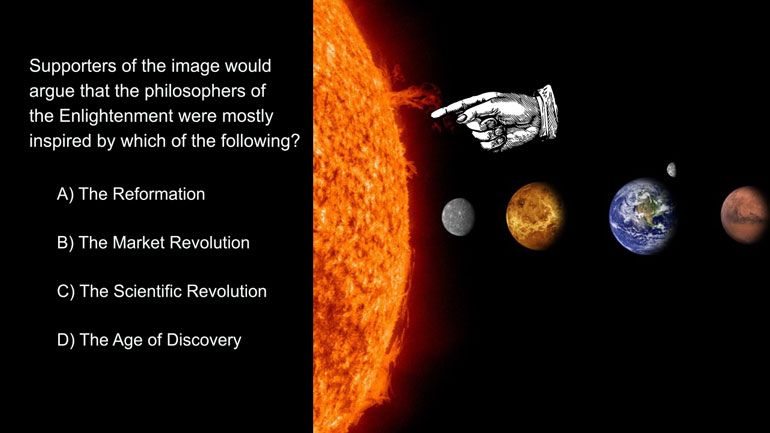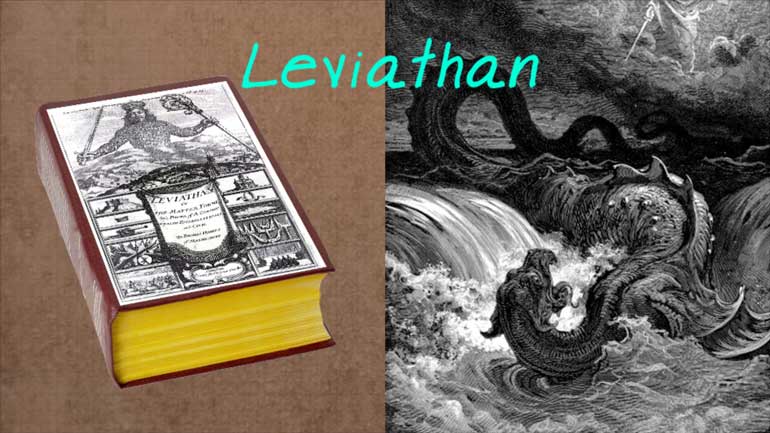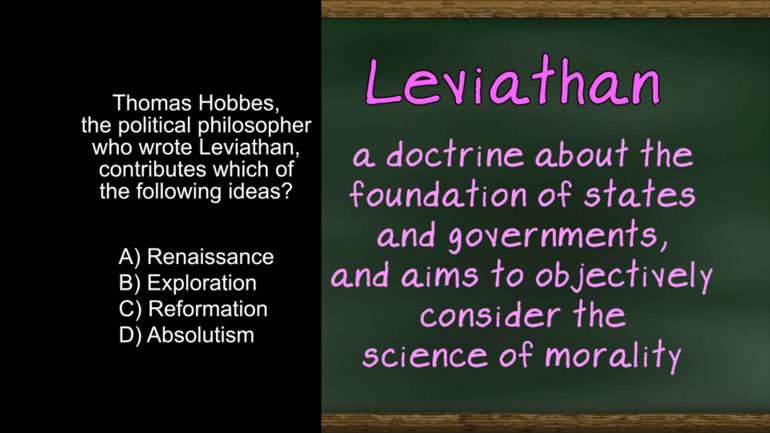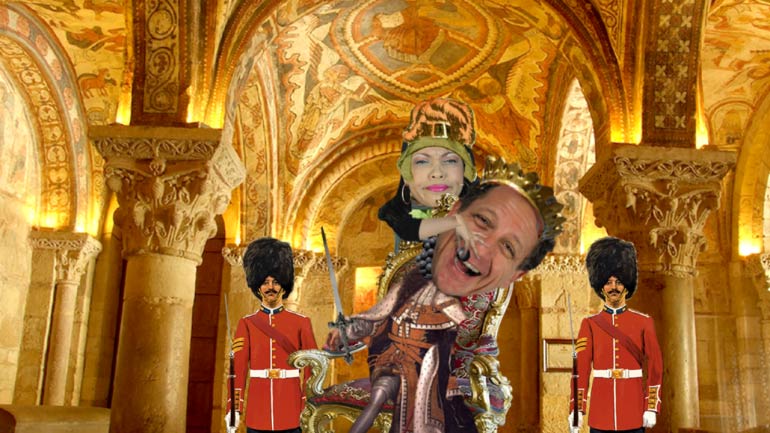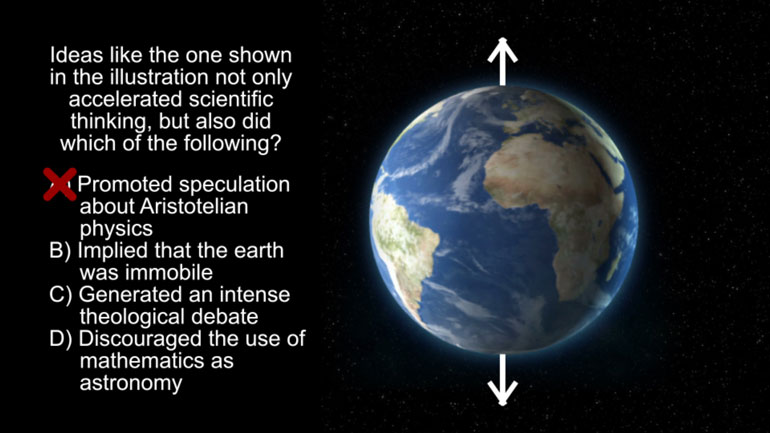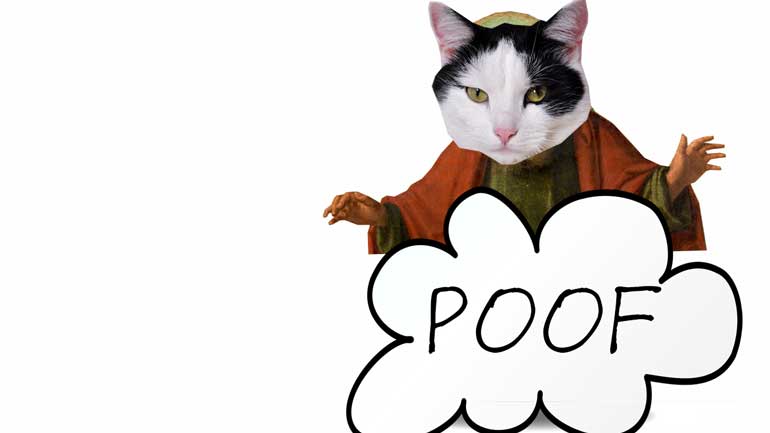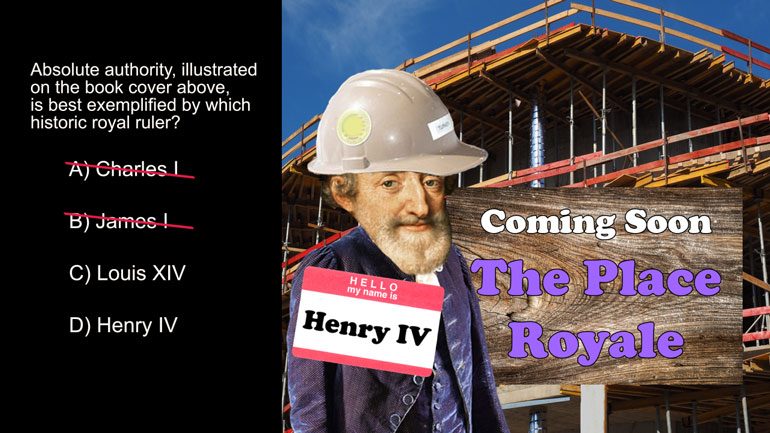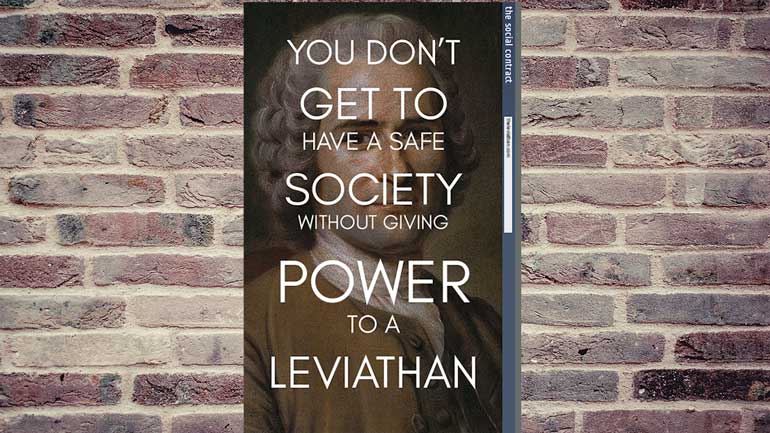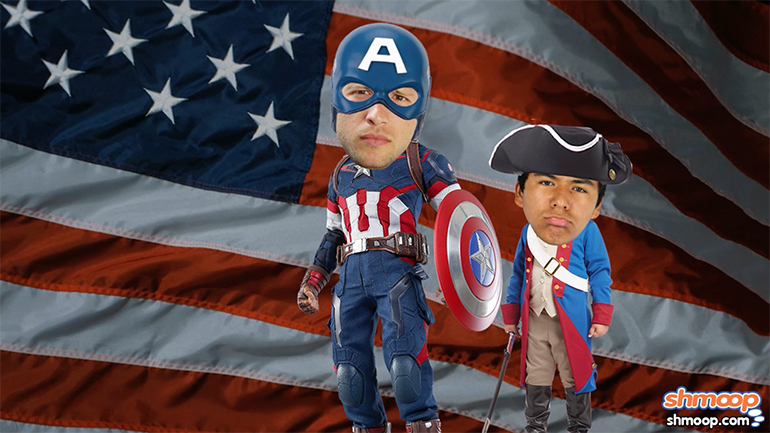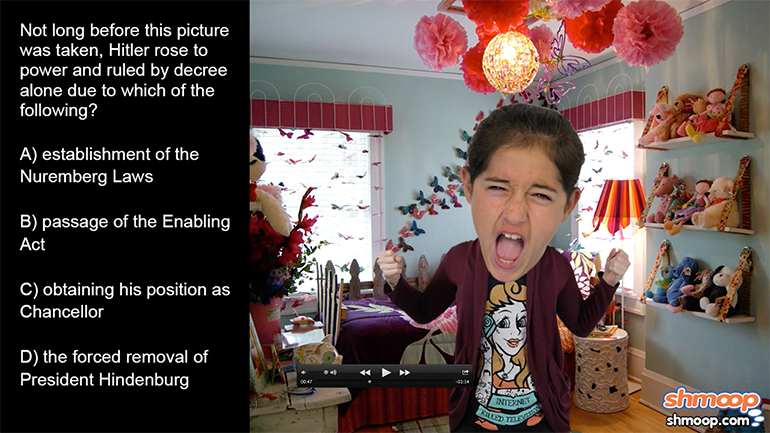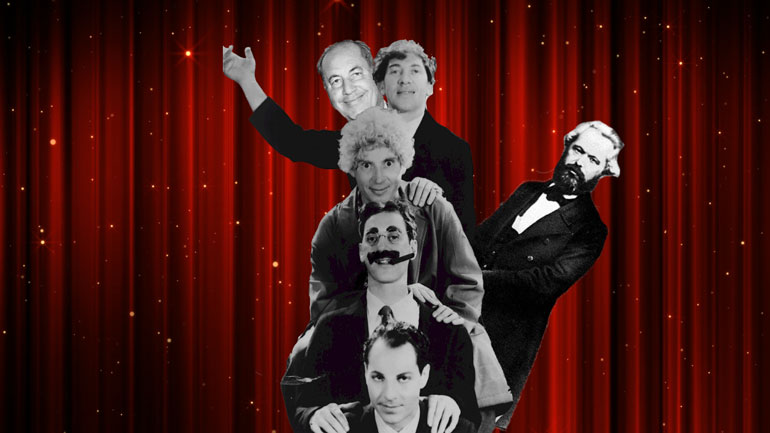ShmoopTube
Where Monty Python meets your 10th grade teacher.
Search Thousands of Shmoop Videos
Period 2: 1648-1815 Videos 9 videos
AP European History 2.3 Period 2: 1648-1815. Supporters of this image would argue that philosophers of the Enlightenment were mostly inspired by wh...
AP European History 1.2 Period 2: 1648-1815. Which best describes the state of nature as highlighted in Leviathan by Thomas Hobbes?
AP European History 1.1 Period 2: 1648-1815. Thomas Hobbes, the political philosopher who wrote Leviathan, contributes which of the following ideas?
AP European History 2.2 Period 2: 1648-1815 147 Views
Share It!
Description:
AP European History 2.2 Period 2: 1648-1815. Advances in the Scientific Revolution, like the one shown in the image, ultimately led English philosophers to doubt which of the following?
Transcript
- 00:04
And here's your shmoop du jour brought to you by the scientific
- 00:07
revolution it'll go down in history as the day the chemistry club demanded more [Students together in a chemistry club]
- 00:11
funding...All right take a look at this image....
- 00:16
Okay, here's the question..Advances in the Scientific Revolution like the one shown
- 00:21
in the image ultimately led English Philosopher's to doubt which of the
Full Transcript
- 00:26
following and your potential answers.. [mumbling]
- 00:30
alright well don't get too excited the Scientific Revolution had nothing to do
- 00:34
with robots taken over the world not yet anyway well the Scientific Revolution [Girl in a bar and Arnold Schwarzenegger appears]
- 00:38
we're talking about here was really just a bunch of nerds sitting around in
- 00:42
Europe figuring out a bunch of mathematical and scientific stuff pretty [Historical scientific figures together in a room]
- 00:46
cool but not like a plot of dozens of movies kind of cool anyway some of the
- 00:50
advances made in the revolution led to many English Philosopher's beginning to [English philosopher's sat together]
- 00:54
doubt something but what was it well was it A; God well not quite from the
- 01:00
beginning of the movement philosophers and scientists never doubted that God [A person with a cat's head dressed in robes]
- 01:04
created the universe in fact much of the work was done under the church and
- 01:07
Copernicus even dedicated his book to the Pope though that didn't stop it from
- 01:12
igniting a fundamental debate within the church but well it was a nice try so that
- 01:16
eliminates A... What about C scientific thinking huh well it doesn't make much [The letter C with two question marks]
- 01:21
sense scientific thinking and mathematical inquiry for that matter
- 01:25
became a part of public and religious life. Science was discussed everywhere
- 01:31
and scientific books were published like never before basically science was the [A scientist wearing a white coat in a lab]
- 01:35
fad of the early modern period pretty cool but not as far out as disco and
- 01:40
bell bottoms, right? All right well that eliminates C and D... That means that the
- 01:44
Scientific Revolution led English Philosopher's to doubt B; absolutism
- 01:49
while the Scientific Revolution didn't make anyone question God they did [A priest and a baby and a crown appears on the baby's head]
- 01:53
start to wonder if religious leaders should really be the ones in absolute
- 01:56
power in other words philosophers started thinking that we should be ruled
- 02:00
by law as in laws we set forth not the divine law so B is the correct answer [A book of law and the letter B with a green tick]
- 02:06
but hey at least nobody has ever doubted how groovy lava lamps are.. Check those
- 02:11
out.. That is a scientific marvel stare at it for a while, see how it makes
- 02:14
you feel. [A laval lamp]
Related Videos
AP European History Period 1: 1450-1648 Drill 2, Problem 1. As a result of the meeting in the image, which of the following occurred?
AP European History Period 3: 1815-1914 Drill 2, Period 1, Les Demoiselles d'Avignon represented the beginning of which of the following art m...
AP European History Period 3: 1815-1914 Drill 2, Problem 4. Paintings like the one depicted above were a direct reflection of what?
AP European History 1.2 Period 4: 1914-Present Not long before this picture was taken, Hitler rose to power and ruled by decree alone due to which...
AP European History 1.4 Period 3: 1815-1914. As evidenced through the passage above, Karl Marx was a passionate leader and is considered the father...
